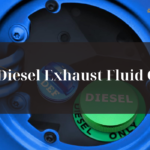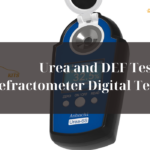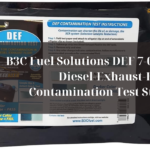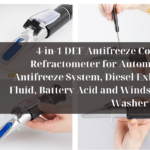What temp does def fluid freeze? DEF begins to freeze at temperatures below 12 degrees Fahrenheit (-11 degrees Celsius)
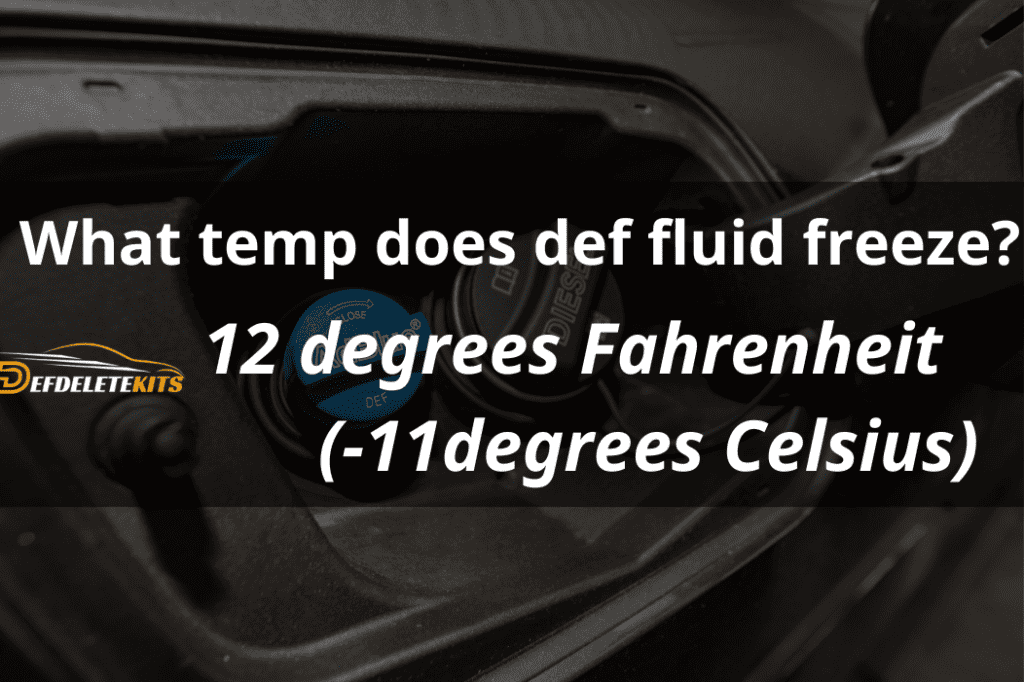
DEF (Diesel Exhaust Fluid) is a critical component in modern diesel engine systems, helping to reduce harmful emissions and meet strict environmental regulations. As an expert in the field, I’m pleased to provide you with the information you seek.
DEF is a solution comprised of 32.5% urea and 67.5% deionized water. While the freezing point of water is 0 degrees Celsius (32 degrees Fahrenheit), the addition of urea lowers the freezing point of DEF. Generally, DEF begins to freeze at temperatures below 12 degrees Fahrenheit (-11 degrees Celsius). However, it’s important to note that the freezing point may vary slightly depending on the concentration and quality of the DEF solution.
To ensure proper vehicle operation in cold weather conditions, it is crucial to prevent DEF from freezing. Most modern diesel vehicles equipped with DEF systems have built-in heating elements and insulation to keep the DEF from freezing. These systems work to maintain the DEF temperature above its freezing point, allowing for continuous operation even in colder climates.
In extreme cold conditions, it is recommended to store the vehicle in a heated environment or use engine block heaters to maintain the temperature of the DEF and prevent freezing. It’s also important to purchase DEF from reputable sources to ensure its quality and effectiveness.
Remember, the freezing point of DEF is an important consideration when operating diesel vehicles in colder climates. Taking the necessary precautions to prevent freezing will help ensure the proper functioning of your vehicle’s emissions control system.
Note: The freezing point information provided here is based on general knowledge and industry standards. It is always advisable to consult your vehicle manufacturer’s recommendations and guidelines for specific information regarding your vehicle’s DEF system.
What happens if DEF freezes in a vehicle’s SCR system?
If DEF (Diesel Exhaust Fluid) freezes in a vehicle’s Selective Catalytic Reduction (SCR) system, it can potentially cause damage or operational issues. Here are some possible consequences:
- Blockage of DEF Lines: When DEF freezes, it expands and can block the DEF lines leading to the SCR system. This blockage can prevent the proper flow of DEF to the system, leading to a malfunction.
- Damage to DEF Components: The expansion of frozen DEF can also cause damage to the components of the SCR system, such as the DEF injector or pump. The pressure build-up from the freezing process can result in cracks or leaks in these components.
- Reduced NOx Reduction Efficiency: The SCR system relies on the controlled dosing of DEF to convert harmful nitrogen oxide (NOx) emissions into less harmful substances. If DEF is frozen or partially frozen, the system may not receive the correct amount of DEF, leading to reduced effectiveness in reducing NOx emissions.
- Engine Performance Issues: In some cases, if the DEF supply is compromised due to freezing, the vehicle’s engine control module (ECM) may trigger a warning or reduce engine performance to protect the SCR system. This can result in reduced power, limited speed, or even a restricted operating mode.
To prevent freezing and potential system damage, it is crucial to store DEF in a temperature-controlled environment and ensure that the SCR system is equipped with appropriate heating elements or insulation in colder climates. If DEF does freeze, it should be thawed before use, and any damaged components should be inspected and repaired or replaced as necessary.
What are the signs of a malfunctioning SCR system due to frozen DEF?
A malfunctioning SCR (Selective Catalytic Reduction) system due to frozen DEF (Diesel Exhaust Fluid) can exhibit several signs and symptoms. Here are some common indicators:
- Warning or Check Engine Light: A malfunctioning SCR system may trigger a warning light on the vehicle’s dashboard. It can be a specific SCR system warning or a general check engine light. This warning light indicates that the system has detected an issue and requires attention.
- Reduced Engine Performance: In response to a frozen DEF situation, the engine control module (ECM) may activate a reduced performance mode to protect the SCR system. This can result in decreased engine power, limited speed, or a restricted operating mode to prevent further damage.
- Increased Emissions: The primary purpose of the SCR system is to reduce harmful nitrogen oxide (NOx) emissions. If the system malfunctions due to frozen DEF, the vehicle’s emissions may exceed the permissible limits. This can lead to increased pollutants being released into the atmosphere.
- Incomplete Regeneration Cycles: The SCR system is designed to go through periodic regeneration cycles to clean the diesel particulate filter (DPF) and maintain optimal performance. A malfunctioning SCR system can disrupt these regeneration cycles, leading to incomplete or failed regeneration attempts.
- Fluid Level Warnings: Some vehicles are equipped with DEF level sensors that monitor the fluid’s level in the tank. If the DEF freezes and causes blockage or improper flow, the sensor may detect a low fluid level, triggering warnings to add DEF or indicating a system fault.
If you experience any of these signs or suspect a malfunctioning SCR system due to frozen DEF, it is recommended to have the vehicle inspected and serviced by a qualified technician. They can diagnose the issue, perform necessary repairs, and ensure the SCR system is functioning correctly to meet emissions regulations.


